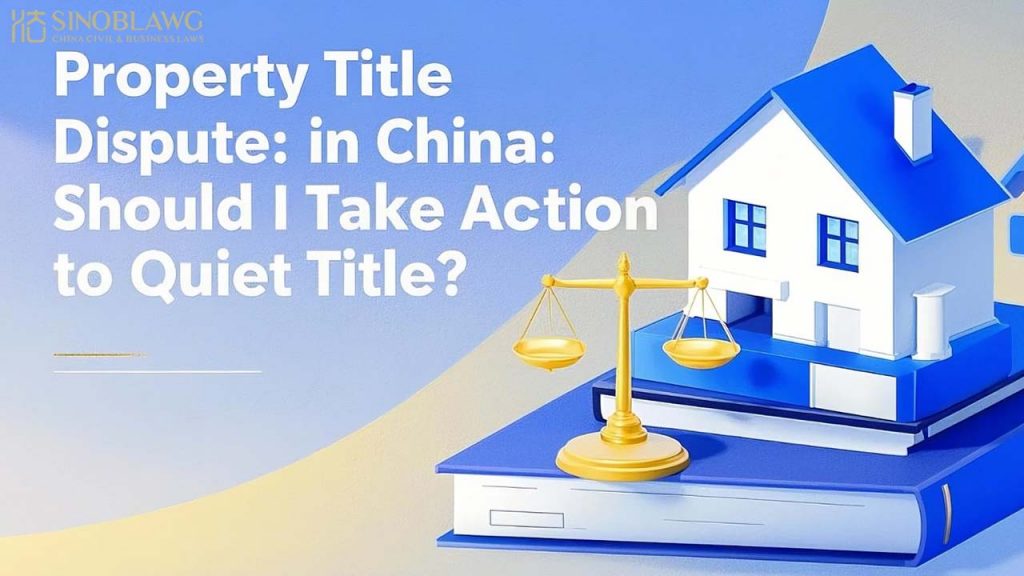We are family law practitioners at large. But our work involves not only divorce and estate issues, but also a lot real estate and corporate/investment laws.
In our daily legal researches, we notice that there are still quite a lot of cases involving frauds in real estate transactions.
For example I, a family member forged your identity card and cheated the notary office, and got a notarized power of attorney. The power of attorney allowed the said family member to sell the property whose title is registered in your name, without your knowledge, and ran away with your money.
For example II, another typical case is where the couple have a community property home but registered in the name of the husband only, and the husband sells the property without the consent of the wife to set off his gambling debt.
So what is your remedy under Chinese law? As a result of the fraudulent conveyance of your property, will you be able to take back your property? Here comes in the doctrine of bona fide purchaser for value without notice, a concept borrowed from common law jurisdictions.

I. Bona Fide Purchaser For Value Without Notice
Bona fide purchaser for value rule basically addresses property title transfer, thus part of property law in a country. So China Property Law (enacted in 2007) incorporates and manifests the rule in its Section 106:
Where a person with no power of disposing transfers real property or personal property to a transferee, the rightful owner is entitled to restitution of the property; except as otherwise provided by law, in conformance to the following circumstances, the transferee acquires the title of the property:
(i) the transferee is in good faith at the time of the purchase of the said real or personal property;
(ii) the transfer is at a reasonable price; and
(iii) properties whose transfer is subject to registration, have been duly registered, and properties with no registration requirement have been delivered to the transferee;
Where the transferee so acquires the title in the properties as described above, the prior owner shall have the right to claim damages against the disposing person.
Other types of real rights may also be acquired in good faith by reference to the preceding two paragraphs.
Section 106 of China Property Law
So read it carefully, and you will get the very gist of this important rule under Chinese laws.
II. Validity of the Sale Contract Concluded by the Person without Disposing Power
For a long time ever since the enactment of China Contract Law in 1999, because of Article 51 of this Law, it was held that the disposing contract under which an unauthorized person sells properties owned by others shall only be valid when the actual owner ratifies the disposal or the persons otherwise acquires the power to dispose. In other words, the disposing contract will be void or invalid if the actual owner does not ratify the disposal or the acting person doesn’t manage to obtain the power to dispose of the properties.
Apparently this has caused outcries and injustice in practice. For instance, a bona fide purchaser is cheated into executing a purchase contract and pay deposit for a house, and it turns out that the other party signing the contract does not have full power to sell the property. Pursuant to the contract law, the sale contract is nullified, the bona fide purchase is left with little remedy for his loss and damages.
So to redress the imbalance, back in May of 2012, China Supreme Court, in its interpretation on application of law to sale contracts, prescribed that a sale contract shall not be ruled as invalid for the reason that the seller does not have the ownership to the goods or does have the power to dispose of the goods. In other words, the lack of the power to effectively dispose of the properties won’t affect the validity of the contract now.
With this change, bona fide buyer can now reply on the contract to sue for damages and compensation.
Even though the contract is now held to be valid, it doesn’t necessarily mean the bona fide buyer will finally obtain the ownership or title in the property. Why? Because the seller to the contract does not have the power to transfer the title to the buyer, so the actual owner may step in and stop the deal, unless the conditions set out in Section 106 of China Property Law as quoted above are met.
III. Scope of Applications of Bona Fide Purchaser for Value Without Notice Rule
Although this rule is an important one in property law, in practice, it is not crystal clear about where this rule shall be applied.
A typical case triggering the rule is where a spouse unilaterally sells the community properties (apartment or house). However, we shall still need to examine the specific conditions of each of such unsanctioned disposal.
In example I at the beginning of this post, that family member could be your spouse. Your spouse forged a POA to sell the property registered in your name. Prima facie, it is a disposing without actual power, and thus should trigger the operation of the bona fide purchaser for value without notice rule. Some judges may inadvertently apply the rule this way. But indeed, there is no room for its application. What comes into play is the apparent authority doctrine in the area of agency law. In this scenario, the buyer acting in good faith enters into the sale and purchase contract in believing that the seller has the authority to act on behalf of the real owner, and if that belief is found to be reasonable, then the contract now binds the actual owner directly, not the seller acting in fraud. This very point differentiates this unauthorized disposing from one that can trigger the bona fide purchaser for value without notice rule.
In example II above, the registered title holder sells the community property registered in his own name without the consent of the his spouse, this is also a typical fraudulent conveyance in family settings. Here, the bona fide purchaser relies on the real estate registration, namely the title deed, in entering into the sale and purchase contract without knowing the other owner. This is where the bona fide purchaser for value without notice rule shall be applied.
In practice, the bona fide purchaser for value without notice rule is surrounded with many controversies both academic and judiciary worlds. This requires a clear and deep understanding of both contract law and property law, and agency law, a mixed area people easily get lost.







Comments